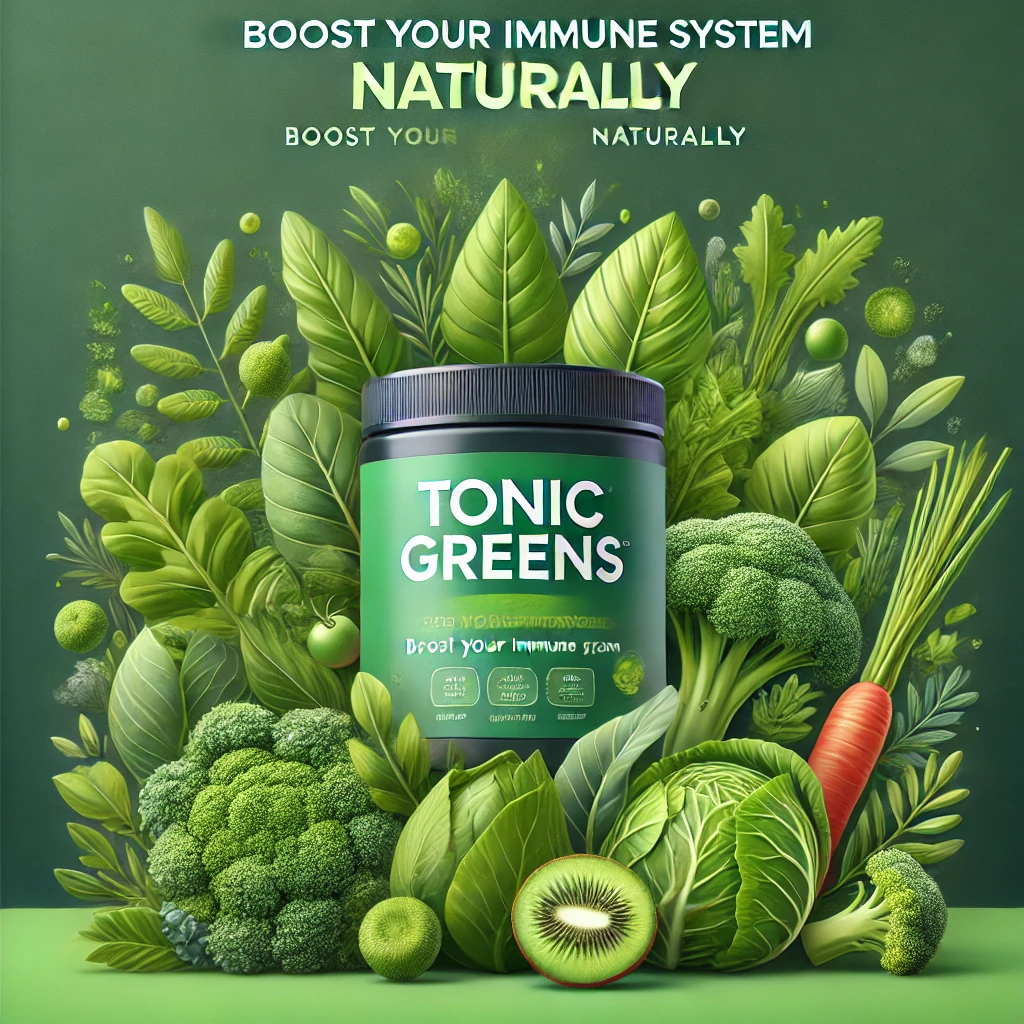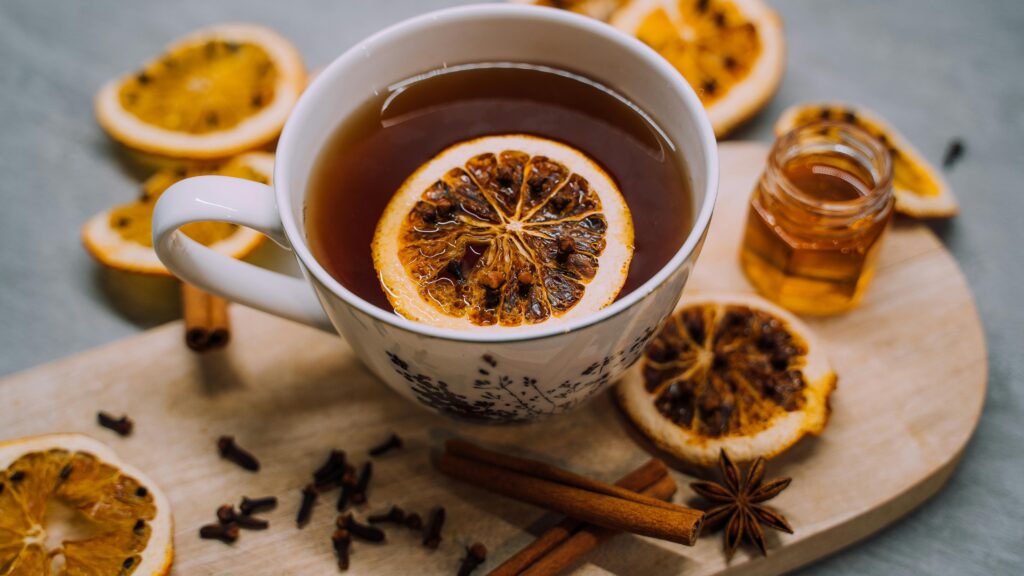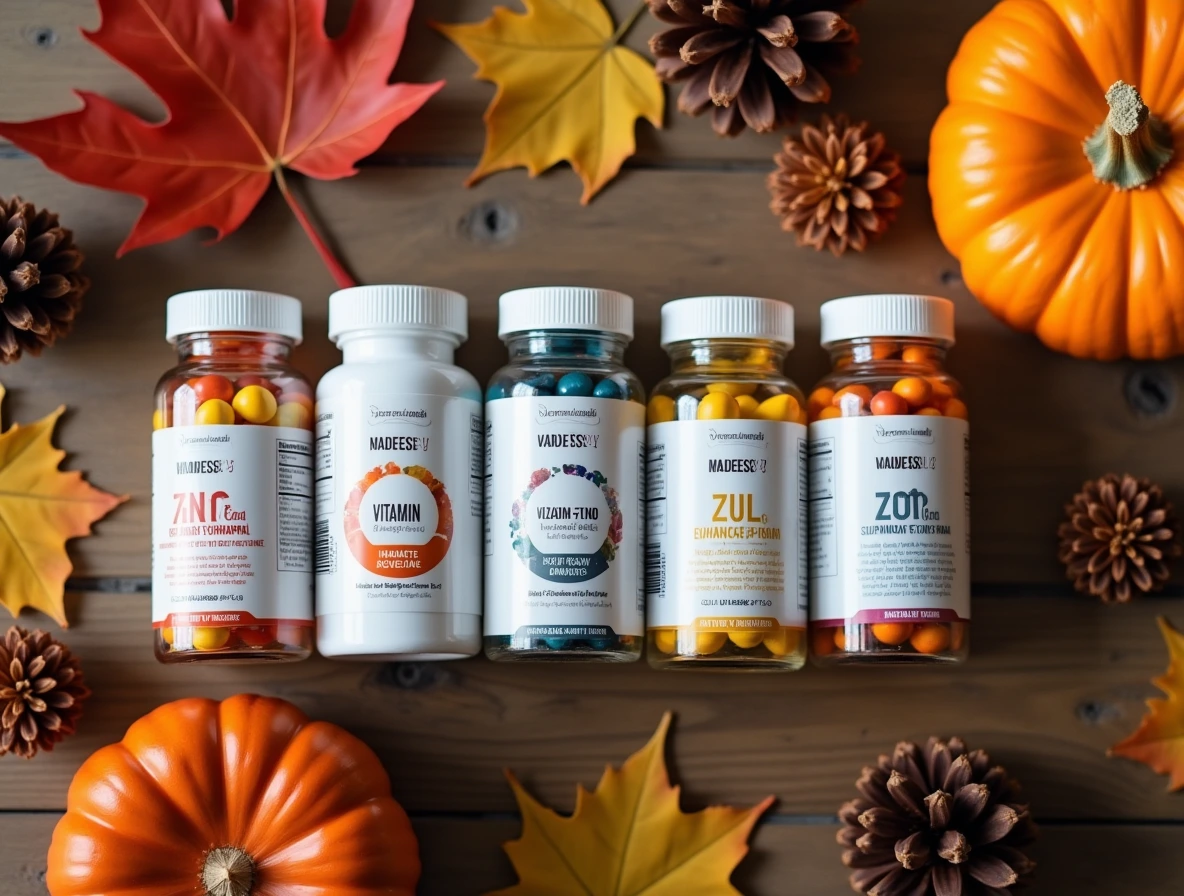Boost Your Immune System This Fall: Tips and Supplements for Staying Healthy
As the days grow shorter and the temperatures drop, fall brings not only the beauty of changing leaves but also the annual resurgence of colds, the flu, and general fatigue. This time of year can be tough on our bodies, especially when our immune system is weakened by stress, lack of sunlight, or poor nutrition. For years, I struggled with the same seasonal dips in health. But after making some changes—especially with the right supplements and lifestyle adjustments—I found a much more resilient immune system that kept me healthier during fall and winter.
In this post, I’ll share some science-backed strategies to help boost your immune system this fall, including key tips, lifestyle habits, and the best supplements you can incorporate into your routine. Specifically, I’ll highlight the benefits of incorporating nutrient-rich supplements like TonicGreens, a superfood blend that I’ve found to be extremely effective in staying strong during the colder months.
Introduction: Why Your Immune System Needs Extra Care in the Fall
The transition into fall can take a toll on our bodies. Less sunlight means lower levels of vitamin D, which is crucial for immune health. Cooler weather also tends to drive us indoors, increasing the likelihood of coming into contact with germs, whether at work, school, or on public transportation. It’s no wonder that cold and flu season starts ramping up right as the leaves begin to fall!
Personally, I used to think that getting sick a couple of times each year was unavoidable – just part of the seasonal cycle. But after getting into a routine that includes a balanced diet, regular exercise, stress management, and targeted supplements, I’ve drastically reduced the frequency of those miserable, bedridden days. Now, instead of dreading the start of fall, I’m proactive about protecting my immune system.
1. Prioritize a Nutrient-Dense Diet
A strong immune system begins with the right fuel. Eating a balanced, nutrient-dense diet filled with vegetables, fruits, whole grains, lean proteins, and healthy fats is the foundation of good health. Your body needs a wide array of vitamins and minerals to keep its defenses strong, and it’s far easier to maintain wellness than to try to recover once illness strikes.
During the fall, I make a conscious effort to fill my plate with colorful vegetables, dark leafy greens, berries, and cruciferous vegetables like broccoli and Brussels sprouts. These foods are loaded with antioxidants, which help to fight off harmful free radicals that can damage our cells and weaken the immune system.
Vitamins and minerals, such as vitamin C, zinc, and selenium, are especially important for immunity. Vitamin C, found in citrus fruits, strawberries, and bell peppers, has long been known for its ability to support the immune system, helping to stimulate the production of white blood cells that defend against infections. Similarly, zinc, which you can get from pumpkin seeds, chickpeas, and beef, plays a crucial role in maintaining the integrity of our immune cells.
A Balanced Diet is Not Always Enough
However, I’ve found that even with a healthy diet, it’s sometimes difficult to get all the necessary vitamins and minerals consistently—especially with a busy lifestyle. That’s where supplements come in to fill the gaps. A well-rounded immune-supporting supplement like TonicGreens can provide an additional layer of defense by supplying you with essential nutrients and superfoods that might not always make it onto your plate.

2. Supplements: The Key to Consistent Immune Support
While a nutrient-dense diet is critical, adding targeted supplements can offer an extra boost, especially when life gets hectic. Personally, I have found that taking supplements regularly, especially during the fall, has made a noticeable difference in how often I get sick and how quickly I recover. Here are some of the most effective vitamins and supplements for immune health:
Vitamin D
Many people are deficient in vitamin D, particularly during the fall and winter months when there’s less sunlight. This deficiency can severely impair the immune system, making you more susceptible to infections. Studies have shown that individuals with lower levels of vitamin D are at higher risk of respiratory infections, such as the common cold or flu .
Personally, I started supplementing with vitamin D a few years ago, and I noticed a significant reduction in how often I came down with seasonal illnesses. Now, I make sure to take a daily vitamin D supplement from October through March. The boost in energy and overall well-being is noticeable, and I rarely experience the fall slump that used to drag me down.
Vitamin C
Vitamin C is probably the most well-known immune-boosting vitamin. It acts as a powerful antioxidant, protecting your cells from oxidative stress and improving your immune system’s function. While you can get plenty of vitamin C from your diet, a high-quality vitamin C supplement can offer additional protection. Studies show that it may shorten the duration of colds and help reduce the severity of symptoms .

TonicGreens: A Superfood Supplement for Immune Support
One supplement I swear by, especially during the fall, is TonicGreens. This potent greens blend contains over 57 superfoods, herbs, and vitamins, designed to give your body an immune boost when it needs it most. It includes ingredients like turmeric, green tea, and garlic—all of which have been scientifically proven to support immune function.
What I love about TonicGreens is that it’s more than just a simple vitamin supplement—it’s a comprehensive formula that targets immune health from multiple angles. It also contains prebiotics and probiotics, which are critical for gut health, and since 70% of your immune system is located in your gut, keeping it balanced and healthy is essential for your overall immune resilience . Since starting TonicGreens, I’ve noticed more energy, fewer colds, and a better ability to fight off any illness that does come my way.
3. Sleep: The Underestimated Immune Booster
We often underestimate the power of a good night’s sleep, but it’s one of the most effective ways to strengthen your immune system. Lack of sleep reduces the production of protective cytokines—proteins that are critical for fighting infection. During periods of sleep deprivation, you’re more likely to catch a cold or the flu and experience longer recovery times.
I’ve noticed a direct correlation between my sleep patterns and my ability to stay healthy during the fall. In the past, when I’d skimp on sleep due to work or social commitments, I would inevitably fall ill. But after making sleep a priority, aiming for at least 7-8 hours a night, I found my immune system could better ward off colds and viruses. If you have trouble sleeping, consider natural sleep aids like magnesium supplements, which help relax your muscles and promote restful sleep.
4. Regular Exercise: Move Your Body, Strengthen Your Immune System
Staying active is another essential part of keeping your immune system in top shape. Moderate exercise, such as walking, yoga, or light jogging, has been shown to improve immune function by increasing the circulation of immune cells throughout the body .
For me, sticking to an exercise routine has been a game-changer, especially during the fall when I’m tempted to slow down as the weather cools. A brisk 30-minute walk in the morning or a quick home workout in the evening can do wonders for circulation, mood, and energy levels.
However, it’s important to note that too much intense exercise without adequate recovery can have the opposite effect on the immune system, leading to burnout and increased susceptibility to illness. Balance is key.
5. Manage Stress: The Silent Immune System Killer
Chronic stress wreaks havoc on your immune system. When you’re stressed, your body releases cortisol, a hormone that suppresses immune function and increases inflammation. Over time, high cortisol levels can lead to a weakened immune response, making you more susceptible to infections.
I used to brush off stress management, thinking it was just part of life, but I’ve since learned that neglecting this area can have a serious impact on health. Incorporating stress-reduction techniques such as meditation, deep breathing exercises, or spending time outdoors has helped me stay balanced, especially during high-pressure times like the holiday season.

6. Stay Hydrated and Limit Alcohol
Staying hydrated is one of the simplest and most effective ways to keep your immune system functioning optimally. Water helps to flush out toxins, supports digestion, and ensures that your cells receive the nutrients they need to function properly.
I make it a point to drink at least eight glasses of water a day, especially during the fall when indoor heating can make the air dryer and more dehydrating. At the same time, I limit alcohol consumption, as alcohol can weaken the immune system and dehydrate the body. Instead of a glass of wine, try a warm cup of herbal tea—it’s hydrating and filled with antioxidants.
Conclusion: Strengthen Your Immune System for a Healthy Fall
With the arrival of fall, it’s easy to feel like sickness is inevitable. But with the right combination of nutrition, exercise, stress management, sleep, and supplements, you can give your immune system the tools it needs to thrive through the colder months.
My personal experience with supplements like TonicGreens has been incredibly positive. By supporting my immune system with this comprehensive superfood blend, I’ve been able to stave off seasonal illness, maintain my energy levels, and enjoy the beauty of fall without the looming dread of getting sick. If you’re looking for a reliable way to boost your immunity this fall, I highly recommend giving TonicGreens a try—it’s been a game-changer for me, and I’m confident it will help you too.




